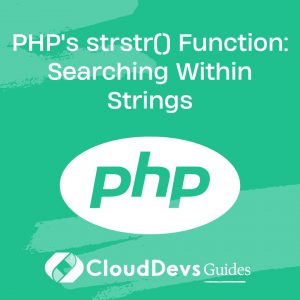PHP Q & A
What are PHP data types?
PHP supports a variety of data types that allow you to work with different kinds of information in your scripts. These data types are classified into two main categories: scalar and compound data types.
Scalar Data Types:
- Integer: Represents whole numbers, both positive and negative, without decimals. For example, `$age = 30;`.
- Float (Floating-Point Numbers): Represents numbers with decimal points. For example, `$price = 12.99;`.
- String: Represents sequences of characters, such as text. Strings can be enclosed in single (”) or double (“”) quotes. For example, `$name = “John”;`.
- Boolean: Represents either true or false values. Booleans are often used for conditional statements. For example, `$isLoggedin = true;`.
Compound Data Types:
- Array: Represents an ordered collection of values, which can be of different data types. Arrays are versatile and widely used for storing and manipulating data. For example, `$colors = [“red”, “green”, “blue”];`.
- Object: Represents instances of user-defined classes. Objects encapsulate both data (attributes) and behavior (methods) into a single entity, promoting code organization and reusability. For example, creating an object of a `Person` class: `$person = new Person();`.
Special Data Types:
- NULL: Represents the absence of a value. It’s often used to indicate that a variable has no value assigned. For example, `$address = null;`.
- Resource: Represents external resources, such as file handles or database connections. Resources are typically used in low-level programming and interact with external systems.
- Callable: Represents a function or method that can be called dynamically. This is a specialized data type used in advanced scenarios, such as callbacks and dynamic function calls.
Understanding and using these data types is essential for effective PHP programming, as they determine how you store, manipulate, and interact with data in your PHP scripts. Properly selecting the appropriate data type for your variables and values is crucial for ensuring code correctness and efficiency.

Previously at


Argentina

GMT-3
Full Stack Engineer with extensive experience in PHP development. Over 11 years of experience working with PHP, creating innovative solutions for various web applications and platforms.



